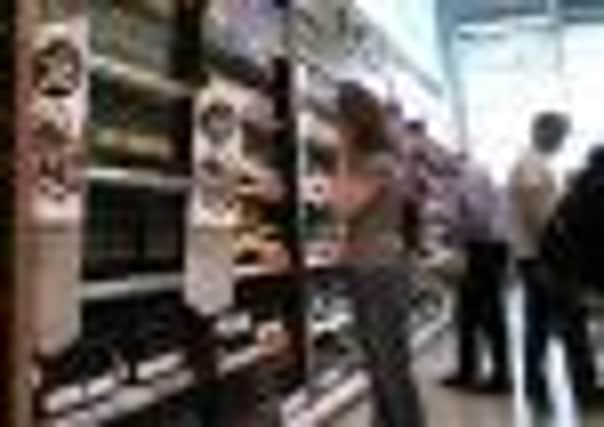Business fears tax raid to pay for SNP budget vows


The warnings come a week after SNP ministers revealed how they expect cash income from business rates to go up from £2.18 billion this year to £2.67bn by 2014-15, an increase of 22 per cent.
The extra yield predicted by finance secretary John Swinney ensured he was able to balance his books over the three-year spending review period.
Advertisement
Hide AdAdvertisement
Hide AdMr Swinney’s department yesterday issued a detailed rebuttal of claims that the sharp rise indicated that rates would soon be rising, saying that for most firms the tax would stay the same as it is in England.
Officials said the increase would be made up of rises for some firms, such as those that sell alcohol and tobacco, the effects of inflation and extra tax yields due to economic growth.
However, government hopes that growth would fill the gap met a sceptical response from the business sector last night. That came as the independent Centre for Public Policy and the Regions (CPPR) said that the government’s figures suggested it was expecting an extra £199 million in business rates revenue in 2014-15 thanks to new firms opening up new premises and thereby paying more tax.
That prompted warnings from business chiefs last night that the government placed too much faith in economic growth, with forecasters already warning of a slowdown. They said such an expectation was “optimistic” and fear that either higher taxes will be required, or budgets cut elsewhere.
However, the Scottish Government said the CPPR’s figures “overstated” its reliance on economic growth. The warnings come with the row over Mr Swinney’s budget plans from last week still continuing. His proposals for the next three years come with the Scottish Government’s grant from Westminster having been frozen effectively for three years.
Mr Swinney enforced a further year’s pay freeze on public sector workers, and decided to increase employee’s pension contributions to help ease the pressure on his funds. Meanwhile, to increase income, he announced a new “public health levy” on supermarkets selling tobacco and alcohol, which will net him an extra £110m over the coming three years.
However, that is only small part of the extra £849m the Scottish Government expects to receive in business rates in the years 2012 to 2015.
The CPPR’s analysis yesterday warned that the increase in business rates, if it did result in a rise in the cash each firm pays, “should reduce business profits … and this should have a negative impact on Scottish GDP, employment, overall investment and Scottish exports”.
Advertisement
Hide AdAdvertisement
Hide AdBut, in response, a Scottish Government paper on the budget insisted that the only additional increase, above inflation, would be for those firms hit by the new public health levy and properties recently been revalued. “No occupied property faces any increase other than from these factors,” the paper declared.
It added: “The Scottish Government will continue over the spending review period to match the English poundage rate and to maintain the most generous package of reliefs available anywhere in the UK.”
The reliance on economic growth drew a sceptical response last night.
A spokesman for CBI Scotland said: “The Scottish Government’s expectation of bumper revenues from business rates over the next few years – even if one discounts for a moment their new taxes on larger retailers and on firms with empty commercial premises – looks optimistic, not least given the state of the economy and recent downgrades to forecasts for future growth.”
He added: “Indeed, this projected growth in revenues will be even harder to achieve given the extra taxes to be paid by retailers, which have been one of the few bright spots in the economy over recent years, and which could put off much needed new investment north of the Border by the sector.
“Our fear is that if there is a shortfall in the devolved government’s income – due to less tax revenue or a failure to achieve efficiency savings – then ministers could well seek to tap the business community again with further tax rises.”
Other business leaders said that it would be wrong to base future government spending on “heroic” assumptions about a growth in business rate income. However, a Scottish Government spokesman defended its forecasts last night.
He said: “Estimates of growth are based on actual trends of economic performance and forecast increases in economic activity.
Advertisement
Hide AdAdvertisement
Hide Ad“In 2010-11, at a time when the economy was emerging from recession the increase in the underlying tax base compared with the previous year was 1.73 per cent.
“The Scottish Government is confident that the growth trend will be maintained over the spending review period as Scotland continues to recover.”
With the global economy having hit turbulence in the eurozone, independent forecasts have recently put UK growth at 1.1 per cent in 2011 and only 1.7 per cent in 2012.
Extra business rate income would flow to the Scottish Government only if new businesses rented properties.
A Scottish Government paper last night said that cash receipts from business rates would also accrue as a result of a revaluation of business properties in 2010.